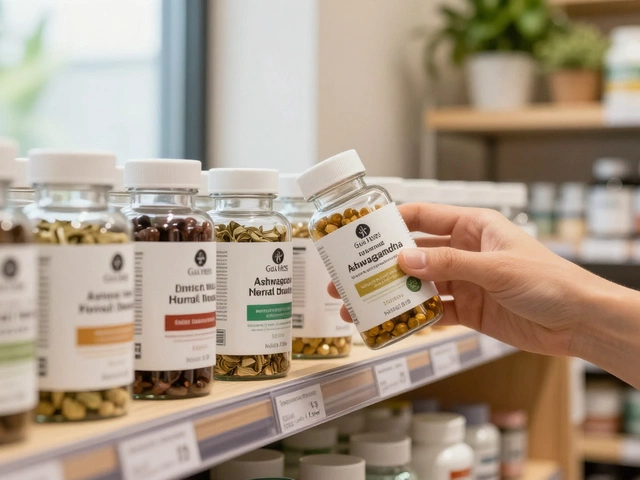Side Effects: What You Need to Know About Medications and Supplements
When you take a pill, drink a tea, or start a new treatment, your body doesn’t just respond with the result you want—it might also react in ways you didn’t expect. These unwanted reactions are called side effects, unintended physical or mental responses to a medication or supplement. Also known as adverse reactions, they range from mild headaches to life-threatening conditions, and they’re not rare. In fact, nearly half of all people taking prescription drugs experience at least one. In India, where self-medication and herbal remedies are common, understanding side effects isn’t just helpful—it’s essential for staying safe.
Ozempic, a popular weight-loss and diabetes drug, is known for causing nausea, vomiting, and sometimes pancreatitis. But it’s not alone. GLP-1 agonists like Zepbound and metformin also carry risks that many patients don’t hear about until it’s too late. Even natural products like St. John’s Wort, a herbal supplement often used for mood, can trigger anxiety, interfere with birth control, or make heart medications less effective. And apple cider vinegar, marketed as a liver cleanser, can erode tooth enamel, upset your stomach, and mess with blood sugar if taken daily without medical advice.
Side effects don’t just come from pills. They show up in blood tests when liver enzymes spike from overuse of painkillers, or when hormone levels drop after long-term thyroid meds. They’re why doctors ask about every supplement you take—even the ones you think are "just herbs." They’re why you can’t shower right after knee surgery, or why insurance denies coverage for weight-loss drugs: because the risks are real, and they’re expensive to treat. In India, where access to follow-up care is uneven, ignoring side effects can turn a small problem into a hospital visit.
You don’t need to be scared of medicine. But you do need to be informed. The posts below cover real cases: what happens when you take the wrong herb for anxiety, why some diabetic pills are safer than others, how IVF drugs affect your body, and why even "natural" doesn’t mean harmless. These aren’t warnings to avoid treatment—they’re guides to use it wisely. Whether you’re on a prescription, trying a supplement, or just curious about what’s in that bottle, you’ll find clear, no-fluff answers here.
Hidden Risks: Disadvantages of Herbal Supplements Explained
Herbal supplements sound natural, but they carry hidden dangers. Discover side effects, potential interactions, and the real risks you need to know.
What is a Concern When Taking Herbal Supplements?
Taking herbal supplements can be beneficial, but it's essential to be aware of potential concerns, such as side effects and interactions with medications. Many people assume that because these products are natural, they're automatically safe, but that's not always the case. Understanding these pitfalls can help you make informed decisions. Always consult a healthcare professional before starting any new supplement regimen.






